The Honourable Minister of Women Affairs, Dame Pauline Tallen, OFR, KSG has revealed that 25 Million Nigerians have one form of disabilities or another, adding that more than 50% of the 25 Million Nigerians are females with only 5% of these number are literate and more than 90% of children with disabilities have no access to elementary schooling.
The Honourable Minister made this revelation on Thursday, 25th August, 2022 in Abuja at the National Conference of Women with Disabilities with the theme, “Violence Against Women with Disabilities is a violence Against All Women”.
The Conference was organised by Advocacy for Women Disabilities Initiative (AWDI) in collaboration with Federal Ministry of Women Affairs (FMWA) and other partners. The Conference was held to further actualize the Ministry’s initiatives on “Social Inclusion”.
The Minister emphasized that there should be behavioural and attitudinal change towards people with disabilities, describing the theme of the Conference as apt as it affords the conferees the opportunity to reflect and raise consciousness on the plights of women and girls living with disabilities who most times fall victim of violence.
In a press statement signed by the Director of Media and Publicity to the ministry Olujimi Oyetomi reveled that the minster said “Women with disabilities are three-times experiencing physical, sexual and economic abuse than women without disabilities”, the Minister observed.
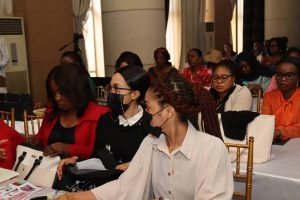
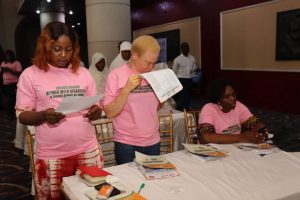
Dame Tallen advised that any programmes to be packaged for People living with disabilities (PLWD) needs to be done with the inputs with women and girls living with disabilities. She pointed out that the Government through FMWA has taken some steps to address the needs of PLWD which includes; the ratification of the Discrimination Against Persons with Disabilities (Prohibition) Acts, 2018 and Violence Against Persons Prohibition Act, 2015.
She revealed that 31 States of the Federation have domesticated the laws to safeguard the rights of persons including the persons with disabilities to varying degrees of implementations.
The Honourable Minister who was represented at the event by Deputy Director, (Women Development), Mrs. Christiana Oliko from the Ministry who stressed that COVID-19 pandemic seriously upended the progress which equally exposed existing inequalities against PLWDs and a rise in new threats. “They persistently face stigma, discriminations and barriers to accessing social services including public transports and social safety-nets. Today, they face greater barriers brought about by the impact of the COVID-19”, she claimed.
Earlier, while giving a welcome address, the Director Overseeing the Office of the Permanent Secretary, Mr. Idris Mohammed who was represented by Mr. Adamu Sumaila, described the theme of the conference as the key that will make possible, the realization of the initiatives on the Conference of States which are parties to the Convention on the Rights of Persons with Disabilities, especially women and girls with disabilities, urging all stakeholders to ensure that the vision and aspiration of the Ministry on PLWDs are included and accounted for in our national development.
The convening organization, Advocacy For Women Disabilities Initiative (AWWDI) headed by its Executive Director, Mrs. Patience Ogolo Dickson while x-raying the objectives of the gathering, said that the nature of violence being confronting PLWDs are different as there are intersections between gender and violence including the new parlance, Disabilities-Based-Violence (DBV). She said studies have shown that PLWDs experience sexual, psychological, physical and emotional violence. Ogolo asserted that as those without disabilities choose their medical preferences, PLWDs should have rights to freely choose also.
The UN Women Country Representative in Nigeria, Ms. Beatrice Eyong supported in this view by Mrs. Tosin Akinbo advocated
that data collection for women who have experienced violence should be collated. She said it is high time to have sustainable partnerships with vulnerable groups like PLWDs for sustainable data-bank. She said every programmes on disabilities should be intentional to feature PLWDs’ activities in different platforms to give their cause, give visibility and publicity mileage.
The represented of the Director-General of National Commission For Women with Disabilities (NCPWD), Mrs. Olanike Akinbola, who also presented a lead-paper at the event, spoke on the need for 35% affirmative action being touted by women to specifically give a percentage share of PLWD in it.
The high point of the event was the “Technical Session” involving panel discussion moderated by Mrs. Olanike Akinbola from NCPWD. This was followed by question-and-answer session with a “Communiqué” issued afterward.
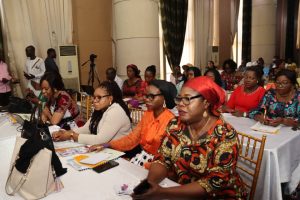
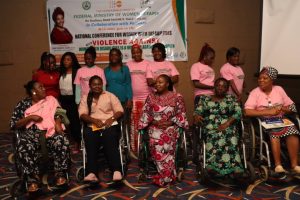



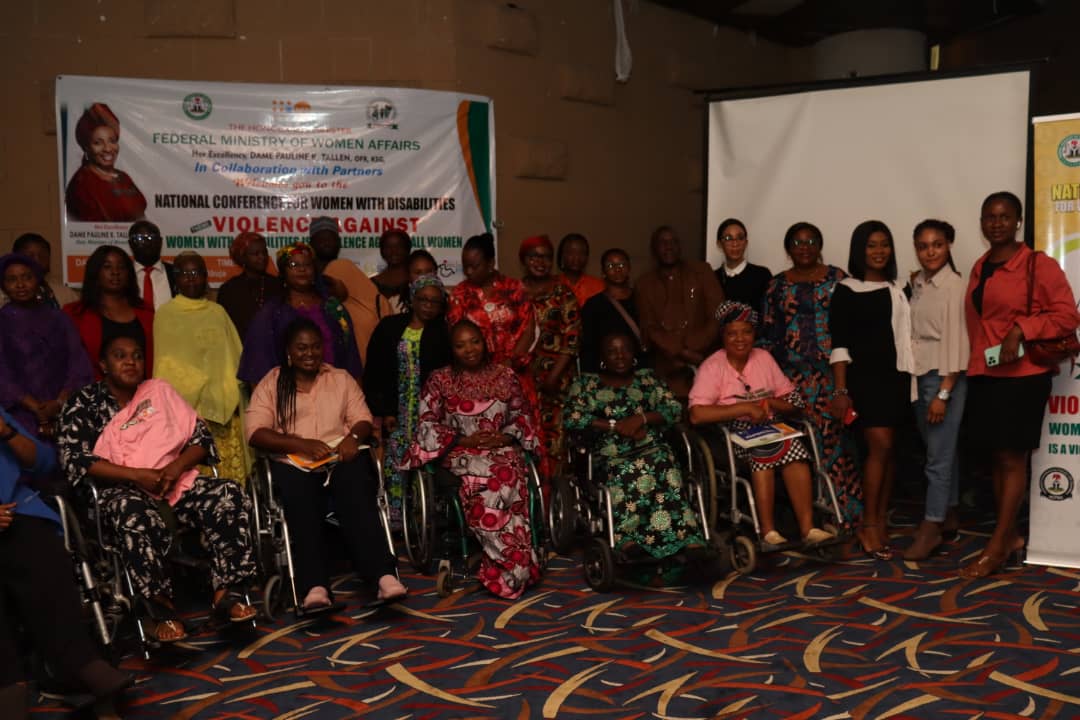



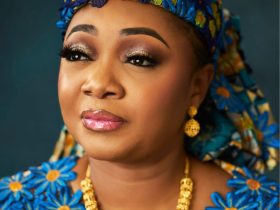

Leave a Reply